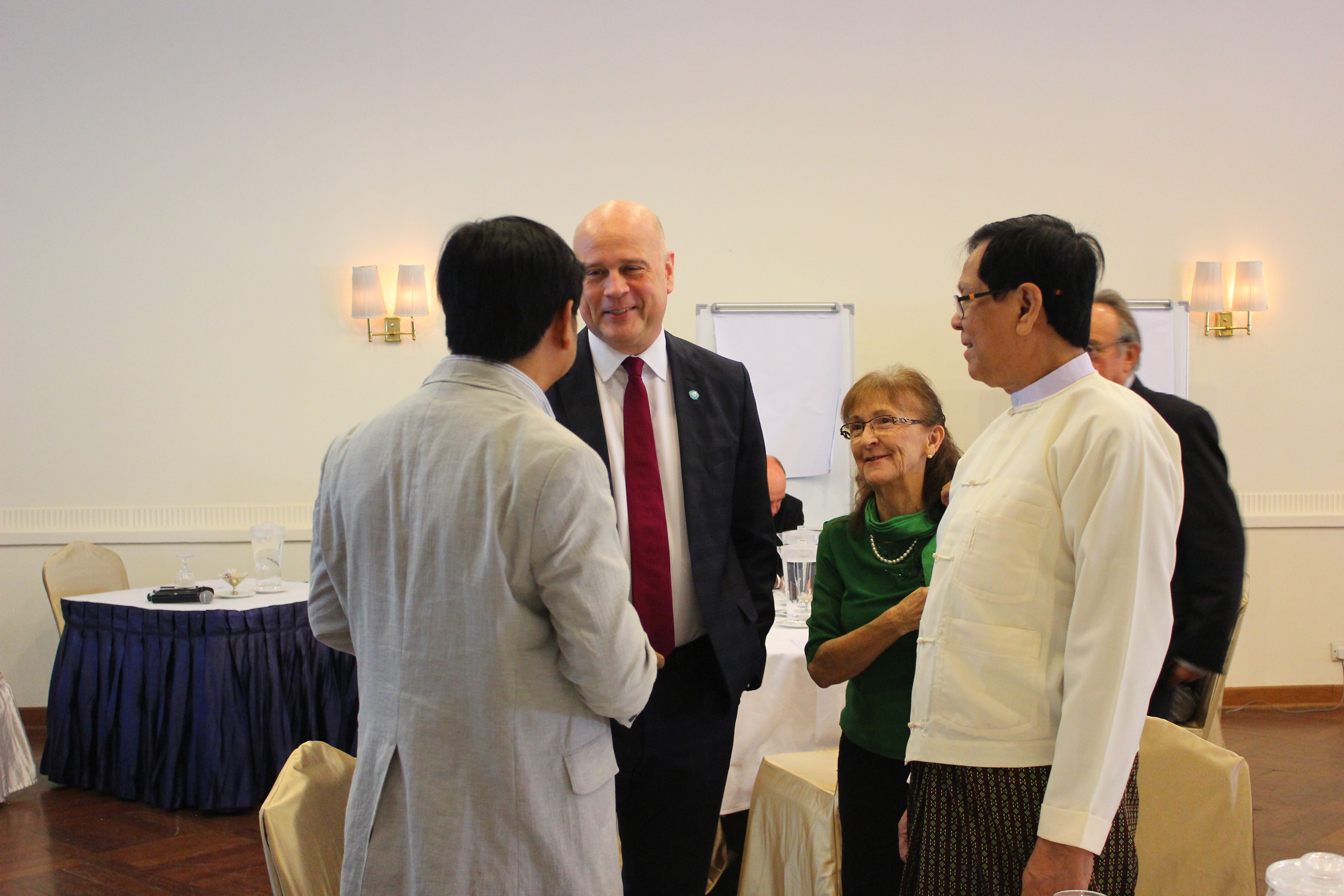

“There is no single model of democracy for all to adhere to” – emphasized Secretary General Thomas E. Garrett in his opening remarks at the constitutional workshop in Yangon, held by the CoD and the Australia-Myanmar Constitutional Democracy Project.
The “Understanding the 2008 Constitution” workshop was a “constitutional conversation”, built upon the assumption that it is always legitimate in democracy to have a wide range of actors engaged in a discussion about a country’s governing document and that constitution is a living document. As one human rights lawyer emphasized at the workshop, “Constitution making cannot be done only in a selected place by a selected few”. U Aye Thar Aung, Deputy Speaker of the Assembly of the Union House of Nationalities, who provided an opening speech at the Yangon workshop, also underlined the importance of the citizens’ understanding of the democratic norms and principles in order to be able to contribute to the country’s democracy.
The Community of Democracies brings together established democracies and young democracies, to share lessons learned and best practices. This was certainly the case in Yangon, where a wide range of international experts shared lessons learned from Australia, South Africa, Indonesia, the United States, Sri Lanka and other countries with the Myanmar participants. The issues that generated a number of discussions and questions included federalism as well as separation of powers.
A historical review of Myanmar’s constitutions also provoked significant discussion. In the nation’s founding 1947 constitution, the equivalent of “We the People”, referring to citizens, led the document’s preamble. Today, in the 2008 constitution, that citizenship label is replaced by reference to “national races”. Workshop attendees spoke about what such definitions meant in a broader sense for their country as well as for themselves and their communities personally.
As part of Secretary General’s visit to Myanmar, SG also met with representatives of the diplomatic corps, NGO community and local civil society to discuss Myanmar’s democratic transition.
Given the importance of the Rohingya issue in Rakhine State and in the refugee camps of Bangladesh to the Governing Council of the Community of Democracies, SG Garrett met with past and current members of the Kofi Annan Commission and the Advisory Board of the Committee for Implementation of Recommendations on Rakhine State. He also met with a young Rohingya activist and with a representative from the Myanmar Muslim (non-Rohingya) community.
Among those he met, Secretary General consistently heard that Rohingya refugees were reluctant to return to Rakhine State, despite the desperate situation many found themselves in. The reasons for this reluctance varied. Chairman U Win Mra of the Myanmar National Human Rights Commission spoke with Secretary General outlining the repatriation and resettlement efforts for the refugees undertaken by the government’s Union Enterprise for Humanitarian Assistance, Resettlement and Development program. Win Sandar Soe, who left Rakhine State following 2012’s communal violence, related her own story of being divided from family both within Myanmar and from those in the Bangladesh camps, and discussed deterrents to the return of Rohingyas today. Al-Haj U Aye Lwin cautioned that Myanmar’s transition from authoritarianism to democracy was still underway and fragile and urged that international commentary on the situation reflect that.
Another consistent comment, from foreign diplomats as well as indigenous activists and civil society, was the importance of continued engagement by the international community with Myanmar’s reformers at both governmental and civil society levels; the Community of Democracies was urged to take a greater role in Myanmar’s turbulent transition.
To view photos from the workshops, visit our Flickr account.



